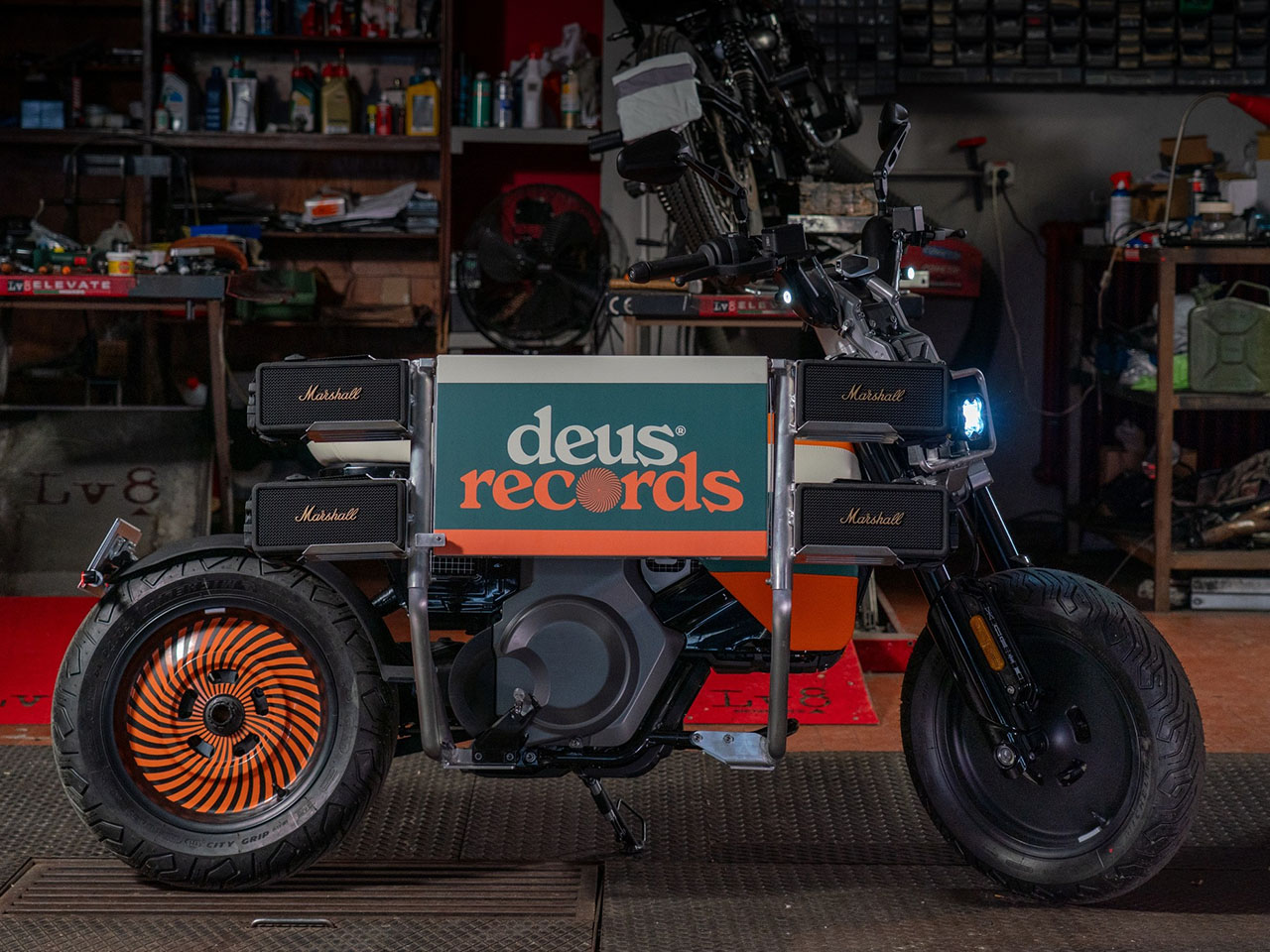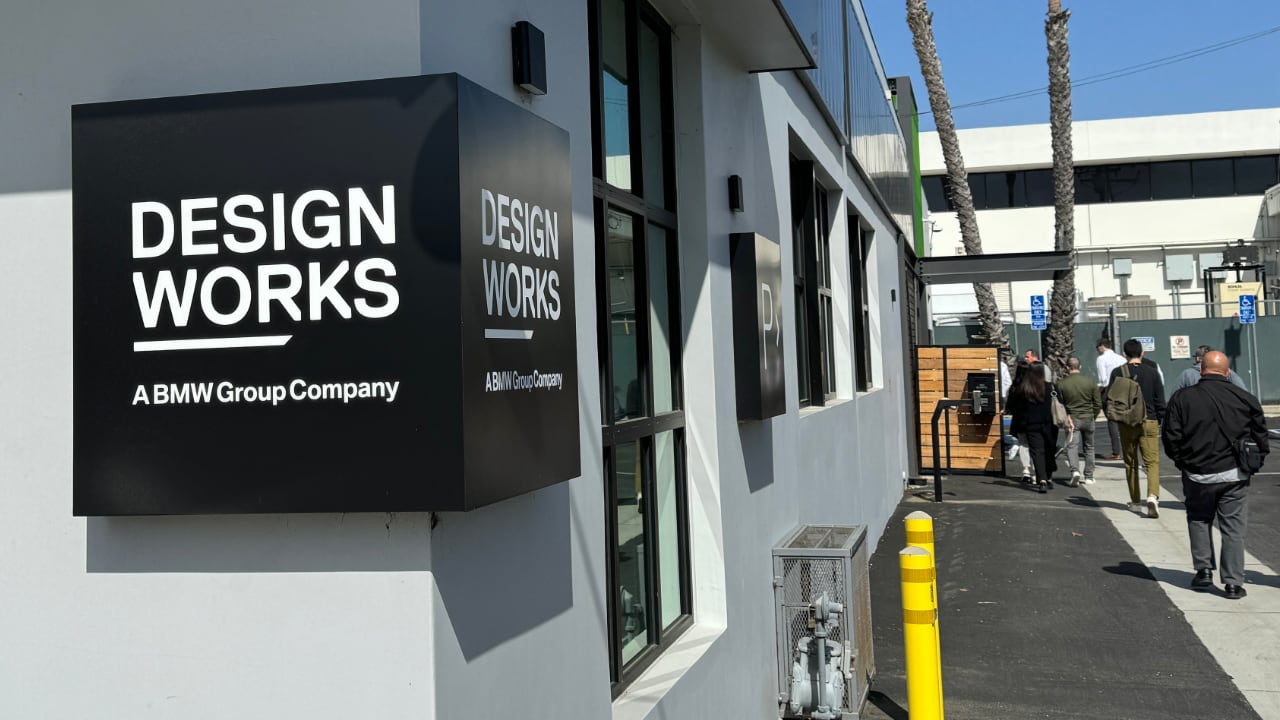BMW DE-02 x Deus electric bike drops beats on the go with integrated turntable and Marshall speakers
![]()
Continuing BMW Motorrad’s tradition of pushing the envelope in motorcycle innovation, the DE-02 electric concept is a compelling evolution in the brand’s forward-looking portfolio. Having previously explored BMW’s design-driven approach to mobility, often marked by a fusion of bold aesthetics and engineering excellence, the DE-02 further solidifies this trajectory. Developed in collaboration with the iconic custom workshop Deus Ex Machina, the DE-02 isn’t just another electric bike.
Built on a platform derived from BMW’s previous electric motocross prototype dubbed E-Parkour, the DE-02 is reimagined with Deus’s distinct aesthetic sensibility. Its minimalistic frame, stripped of unnecessary bulk, keeps the structure lightweight while maintaining rugged functionality. The frame is crafted from chromoly steel, chosen for its balance of strength and weight, while the carbon fiber body elements contribute further to reducing mass without sacrificing durability.
Designer: BMW Motorrad and Deus Ex Machina
![]()
A bold reinterpretation of the original CE 02, the DE-02 also draws inspiration from the creative universe of Deus Records, blending lifestyle culture with electric mobility. Departing from the usual utility-focused configurations, this version transforms the “eParkourer” concept into a fully functional DJ booth on two wheels. In place of a surf rack, the bike features a bespoke sound system equipped with four Marshall Middleton speakers and a centrally mounted turntable, inviting riders to mix music anywhere, right from urban alleys to remote mountainscapes. The design is elevated with a hand-stitched leather saddle embroidered with the Deus Records logo, seamlessly integrated with the speaker system and turntable setup.
![]()
Additional custom touches, such as a tailored license plate holder, modern LED lighting, shortened indicators, and streamlined mirrors, enhance its distinct character, making the DE-02 not just a motorcycle, but a mobile artistic statement. Powering the DE-02 is a 5.5-kWh battery connected to an air-cooled electric motor delivering 11 kW of continuous power, with peak performance reaching up to 20 kW. This output positions it in the 125cc category for licensing in many regions, making it accessible while offering enough torque for spirited off-road performance. Its chain-driven rear wheel and slim, motocross-style design suggest a focus on agility and maneuverability, ideal for both trail riding and urban environments.
![]()
The design places strong emphasis on minimalist, utilitarian styling. A narrow profile, slim tank, and integrated seat give it a purposeful silhouette. Elements like the custom CNC-machined triple clamps and a bespoke swingarm speak to the level of detail and craftsmanship applied. The visual design is further enhanced by a simple monochromatic palette and a high-mounted LED headlight that offers a nod to classic enduro aesthetics. Suspension duties are handled by high-performance components: a WP XACT USD fork up front and a WP shock at the rear. The DE-02 rolls on 19-inch Excel Takasago wheels paired with Pirelli Scorpion Rally tires, underscoring its off-road intentions. Braking is managed by a Beringer system that includes disc brakes at both ends, offering precise stopping power.
![]()
While the DE-02 is not intended for commercial production, its creation represents a fusion of engineering and artistry. For BMW Motorrad, it’s part of a broader strategy to explore electric propulsion in motorcycling, beyond commuter-focused scooters. It also highlights how the future of motorcycles may not just lie in performance specifications but also in the emotional and cultural identity that design can offer.
![]()
![]()
![]()
The post BMW DE-02 x Deus electric bike drops beats on the go with integrated turntable and Marshall speakers first appeared on Yanko Design.

